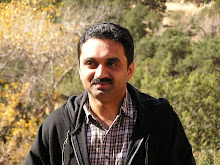Picture courtsey: http://i.indiafm.com/
Enough is already blogged about “ChakDe India” and how it is a copycat of one of the classical movies by Disney ("Miracle") and Miracle_(film)
This post therefore, certainly won’t be another one of the kind to crib about how Bollywood is incompetent to produce on its own such a magical movie. Every time I watched the Disney Movie “Miracle”, I always thought such a movie, if portrayed for the audience in India, could make a lasting impact. The outstanding factor about “Miracle” movie theme is the perfect blend of “patriotism”, “spirit of the game” and “team work”. Of course, most of the movies made out of even one of these themes enjoyed huge success in the movie industry. To “ChakDe” hence, “failure was not an option”.
The core theme that the movie attempts to showcase is the art of “Team building”. Being part of a team and at several instances, being responsible for building the team, might have given you insights to closely watch how a team that can perform at its optimum is formed or on the contrary, one that is destined for obvious failure is built. There are contrasting differences across both the scenarios.
A team is formed to achieve a task that cannot be achieved by an individual alone. Therefore, the first and the obvious objective why a team is formed for is to achieve a goal that is clearly defined. Team starts to exist when the goal is established and cease to exist when the goal is achieved (unless of course, team takes up a new goal and continue but the context becomes different).
In Miracle, Kurt Russel (actor and coach) has got his cards right in setting the objectives at the inception of the team itself. His one and only objective is to have the US team beat the Soviets to win the championship. Soviets were the reigning champions and therefore, setting the objective to beat the best of the lot makes the job fairly easy. At every instance of team sessions, coach shares this clear objective with the team.
“ChakDe” has failed in this context miserably. Coach has the deepest desire to convert his “Silver” medal to a “Gold” but this is a very personal ambition. It would have been fair enough, if this personal ambition (nothing wrong with the ambition though) was translated to the team objective of winning the world-cup. In the movie, this objective never reached the ears of the Indian team; but the script writer was kind enough to take the team through the victory lane in each of the team’s encounters.
The amazing “Forming-Storming-Norming-Performing” theory of team building process is sketched to a good effect in both the movies. Of course the reality is not always closer to the theory, so Bruce Tuckman’s storming is continued until the climax of the movie in “ChakDe”. Only at the last minutes of their final encounter with Australia, the “forwards” of Indian team comes to realize the importance of team over the individual accolades waiting for them. “Miracle”, however, is following the theory to the closest though. The stages of team formation are pictured closer to perfection as suggested by the theory.
Fortunately, “ChakDe’ is a movie, and hence had the option to bring in a bunch of eve-teasers at the right place and at the right time for the individuals in the team to come together and defeat the opponents. In real life, many coaches are not lucky enough to survive that moment of truth when he / she decide to resign and at that right moment, the team realizes the mistakes and welcomes their coach back.
Many times, 80% of the credit for an optimally performing team should go to the person responsible for the team. The alias for this responsible person could range from a coach or a mentor to a boss, manager or a CXO (let us use the term coach here since the term fits the context of the movie). Both these movies have got it right. But how far?
In real practice, a successful coach is one who finds and eliminates factors or constraints that restrain the team from performing at the optimum level. The constraints could be at the individual level or the way individuals interact with each other when the herd commences to be termed as a “team”. The burning question is “Should Coach help to see through the problems in the personal lives of team members”.
Kurt Russel, in many occasions seems to embrace the fact of going that extra mile to understand in detail the personal life of some of the team members. “ChakDe” director has evaded Shah Rukh Khan from most of these troubles and leaves it to the individual team players to sort out problems in their personal lives. I am not sure how to judge these coaches in this regard; but honestly, I tend to back “Miracle” coach in offering a pat on the back for his team at crucial junctures.
As a movie, “ChakDe India” fares well. It is up to the script writer and director to make the movies to what they feel is right for the audience. However, there is a section of the society that has failed to perceive the movie in the right manner. It is none other than some of the Management Schools that has decided to adopt “ChakDe” to their syllabus. As a classical case for Team Building, I would certainly suggest these esteemed institutes to look at “Miracle” as the alternative. To me “ChakDe India” is a movie and “Miracle” fits the best for a management study curriculum.











